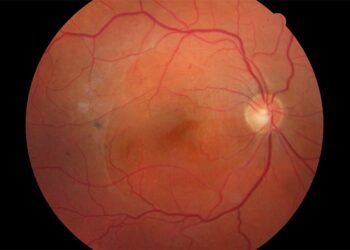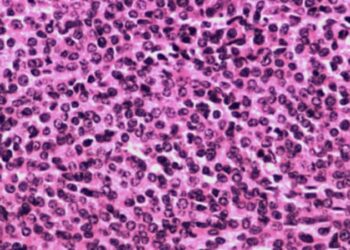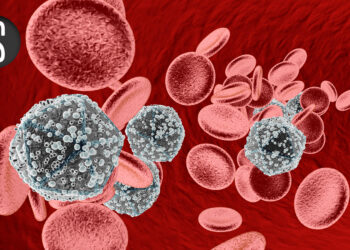A new study has linked women’s regular sexual activity with less dryness, vulvar pain, and irritation, all common reasons women have less sex as they get older. Results of the study were published in Menopause.
However, an expert not involved with the study urges caution in interpreting the results as meaning regular sex relieves the symptoms.
The study authors acknowledged that the design of the study determines only an association, not a cause, so it is not clear without a prospective trial, for example, whether having regular sex causes reduction in symptoms or whether women who have fewer symptoms are more likely to engage in regular sexual activity.
The study authors pointed out that low estrogen levels during and after menopause may reduce women’s life expectancy and decrease quality of life through the genitourinary syndrome of menopause (GSM). GSM includes genital, sexual, and urinary symptoms — all of which can affect how frequently women aged 40-70 years engage in sexual activity.
Results Highlight the Importance of Diagnosing GSM
“The findings highlight the importance of diagnosing and treating GSM,” Monica Christmas, MD, associate medical director for The Menopause Society, said in a press release.
“Local low-dose vaginal estrogen therapy is safe and highly effective at alleviating bothersome vulvovaginal symptoms contributing to pain and avoidance of intercourse,” she said. “[I]t is also imperative to recognize the effect these symptoms can have on women who aren’t sexually active. Treatment should be offered to anyone with symptoms, whether engaging in sexual activity or not. Normalizing the use of local low-dose estrogen therapy should be a thing.”
The study included 911 sexually active women aged 40-79 years selected from the GENitourinary syndrome of menopause in JApanese women (GENJA) cross-sectional study. The women were divided into two groups: The regular sexual activity group, defined in the study as having had sexual activity in the past 3 months (n = 716), and the lower sexual activity group (women with sexual activity in the past year but not in the past 3 months (n = 195). The researchers evaluated sexual function and symptoms in the regular sexual activity group using the Female Sexual Function Index (FSFI) and compared GSM-related symptoms between the groups.
Orgasm Capacity Didn’t Decline With Age
The researchers, led by Yoshikazu Sato, MD, PhD, with the Department of Urology, Sanjukai Urological Hospital, in Sapporo, Japan, reported that FSFI scores suggest that desire, arousal, and lubrication ability declined significantly with age, and sexual pain generally increased.
“However, there was no significant decline in FSFI scores with age in terms of orgasm capacity and satisfaction in participants with regular sexual activity,” the authors wrote. Although most of the women reported low desire and arousal levels, women who engaged in regular sexual activity maintained their orgasms and satisfaction to some extent, “corroborating the results of previous reports that state that not all sexual functions necessarily decline linearly with age,” they added.
Association Does not Equal Cause
Wai Lee, MD, director of female pelvic medicine and reconstructive surgery at The Smith Institute for Urology, Northwell Health, in New York City, who was not involved with the study, told Medscape Medical News that while this study demonstrates that women engaging in recent sexual activity were less likely to have vulvar pain, dryness, and irritation, “it is important for readers to not conclude that regular sexual activity led to improvements in GSM-related symptoms. A limitation of this study design is that we can’t determine causality 2014 so we must consider that in these women, GSM-related symptoms made them less inclined to engage in regular sexual activity.”
The authors pointed out possible alternative reasons for the association of regular sexual activity with fewer vulvar symptoms: “First, women with good vulvar health or fewer vulvar symptoms are more likely to engage in regular sexual activity. Second, women who engage in regular sexual activity may have greater awareness of maintaining healthy vulvar conditions, and thus show greater care for vulvar health and experience less vulvar symptoms. Third, the physical, emotional, and mental effects of regular sexual activity may positively impact vulvar symptoms.”
Lee said another interesting finding is that “despite worsening female sexual function scores for women in their 50s, 60s, and 70s, only 2.9% of the study population received any hormonal therapy. This low rate is consistent with Japanese claims data from 2021 where fewer than 1% of women over the age of 60 received estrogen prescriptions. It is important for physicians and patients to be aware of the effectiveness and safety of vaginal estrogen for symptoms of GSM,” he said.
Marcia Frellick is a Chicago-based healthcare journalist and a regular contributor to Medscape.
The authors and Lee reported no relevant financial relationships.
Source link : https://www.medscape.com/viewarticle/more-frequent-sex-linked-less-pain-menopausal-women-2025a1000h98?src=rss
Author :
Publish date : 2025-06-27 09:29:00
Copyright for syndicated content belongs to the linked Source.














